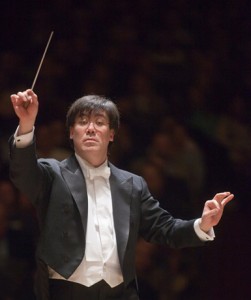In case you missed it, Alan Gilbert gave a talk to the Royal Philharmonic Society about the future of orchestras which is worth the attention of all classical music enthusiasts. In his time at the New York Philharmonic Gilbert has ruffled feathers with his innovative approaches to programming, bucking against the status quo. In fact, as he prepares to leave his post and the administration is searching for his successor, it is speculated that the next conductor at the baton will be more conservative in their approach. But we can hope that isn’t the case.
In his speech at the RPS Gilbert argues that the role of orchestras needs to be redefined and reimagined if they will continue to stay relevant and valued in communities:
The potential for music and orchestras to be a significant force in education and even social change is now firmly established and the need to be forceful and pro-active in those areas is no longer a question of if, but how.
Much of his talk centers on the ways in which he has worked to create a more dynamic concert experience at the NYPhil, including staging many works during his tenure, as well as the ways in which programming contemporary music is handled well (or otherwise). But Gilbert’s larger point is how an ensemble must serve and connect to the community in which it operates and how doing so can be hugely beneficial to everyone:
The important thing is to build up a sense of mutual trust and connection with the audience—something I aspired to when I began six years ago in NY. I envisioned a situation in which our audience knows and believes in our track record, and will come give any piece of music a try, simply because Gilbert and the Philharmonic are playing it. The point is never that every piece will necessarily be a masterwork that will go down in the ages, or that every audience member will love every piece we play, but rather that there is always a compelling motivation behind every piece’s placement, and that what we are doing for Music with a capital M makes the journey of discovery important to share.
It is by developing that trust that artistic directors and conductors can begin to challenge their audiences to thinking, and listening, beyond Bach, Beethoven, and the boys. And it is through these changes in programming, creating new and exciting concert experiences and telling a new and more inclusive history of music, that orchestras in every community have the opportunity to engage audiences and thrive in the coming years.
There has always been a meaningful connection between orchestras and the communities that support them, evident in the historic music journalism, in the camaraderie that carried orchestras from across the country to the now defunct Spring For Music concerts at Carnegie Hall, and most recently in the Baltimore Symphony Orchestra’s free concert amid the turmoil in their city. I hope the enthusiasm and innovations that have begun to unfurl in the work of Gilbert and his like-minded colleagues will continue to spread, and that we will no longer be questioning if orchestras or classical music is relevant in today’s world. Instead we will be remarking on the ways in which inclusive programming can begin conversations, remember forgotten history, and inspire communities to engage with the arts.
You can read the full text of Gilbert’s talk here.

